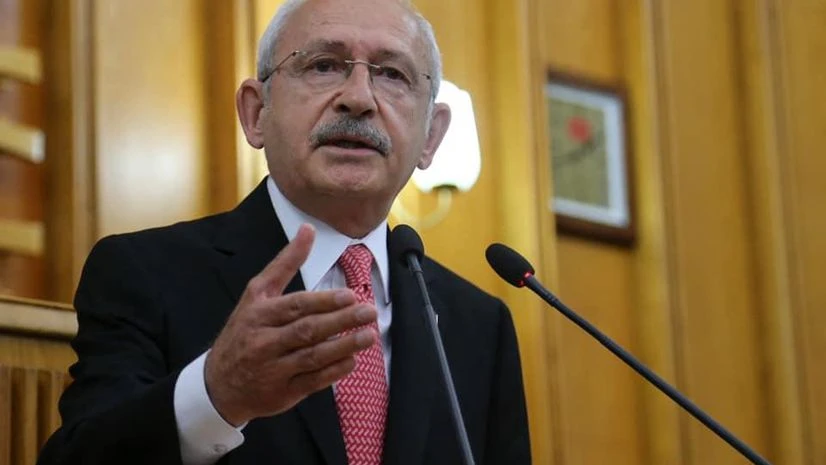Turkey's President Recep Tayyib Erdogan is facing a real challenge in the nation's elections for the first time since coming into power in 2003. Leading the Opposition is 74-year-old Turkish economist and retired civil servant, Kemal Kilicdaroglu. Popularly referred to as "Gandhi Kemal" by the Turkish media, Kemal Kilicdaroglu is the leader of Cumhuriyet Halk Partisi (CHP) (translated to Republican People's Party in English), Turkey's oldest political party founded by Mustafa Kemal Ataturk, who is considered the founding father of the Republic of Turkey, serving as the first President of the nation from 1923 until his death in 1938.
Background
Kilicdaroglu was born in 1948 in the province of Tunceli. He graduated from Ankara Academy of Economics and Commercial Sciences (now Gazi University) in 1971 with a degree in economics. He was a civil servant at the Ministry of Finance, working his way up from junior account specialist to Director General of the Revenues Department before embarking on his political career.
Political Career
Kilicdaroglu's political career began in the 1980s when he joined the Social Democratic Populist Party (SHP), which later merged with other left-wing parties to form the CHP. Kilicdaroglu quickly rose through the ranks of the party and became a member of parliament in 2002.
Also Read
In 2010, Kilicdaroglu was elected as the leader of the CHP, and since then, he has led the party in several elections. Although the CHP has been in Opposition for most of its existence, Kilicdaroglu has managed to maintain the party's position as a significant force in Turkish politics.
In 2016, he was prosecuted for making statements that implied that President Erdogan was a dictator while speaking against the arrest of over 20 Academics for Peace who condemned the military crackdown in the-dominated southeast.
One of Kilicdaroglu's most notable political actions was the March for Justice in 2017. After a member of parliament (MP) from the CHP was sentenced to prison on terrorism charges, Kilicdaroglu embarked on a 450-kilometer march from Ankara to Istanbul to protest the verdict and demand justice for the MP. The march attracted widespread support from Opposition parties and civil society organisations, and it highlighted the increasing authoritarianism in Turkey under President Erdogan's rule.
Turkey's Gandhi
Kilicdaroglu's leadership style and political actions have led some to compare him to Mahatma Gandhi. The Washington Post noted that Kilicdaroglu earned the nickname "Gandhi" because of his physical resemblance to the Indian leader. Dundar also noted that Kilicdaroglu's commitment to non-violent resistance and his struggle for justice and equality for all people are qualities that are similar to Gandhi's philosophy.
Religious minority
According to Minority Rights Group International, Alevis are "the largest religious minority in Turkey". The Alevi community is an Islamic sect that has significant differences from mainstream Sunni Islam in Turkey.
Erdogan has pushed the Sunni form of majoritarianism into a previously secular system. As a result, the community has become more isolated and continues to face growing discrimination along with other marginalised groups.
Political agenda and future of Turkey
According to a Reuters report, Kilicdaroglu has faced criticism for lacking a clear vision for the future of Turkey after Erdogan and claims he lacks the ability to capture audiences.
In an interview with Sky News, Kilicdaroglu stated that Turkey was no longer a transparent country and that his first step would be to conduct a report to survey the damage and share it with leaders. Without seeing the balance sheets and assessing the liabilities it is difficult to create a plan for the future.
Kilicdaroglu, in the same interview and in many public discourses has reiterated that the focus is to bring back democracy to the nation by reversing Erdogan's policies and improving relations with the West, and becoming part of the European Union.
Why this election is important?
With the nation going into a runoff on May 28, the future of the nation lies with swing voters and Turkey's youth who will be voting for the first time.
Erdogan and Kilicdaroglu are staring at a runoff vote after none of them managed to secure the necessary 50 per cent votes in the election on May 14.
Western nations and foreign investors are closely awaiting the outcome of the votes as Turkey is placed at the center of the East and West. As the center of diplomatic relations, the country has played a key role during the war in Syria, NATO expansion, and exports of Ukraine's grain.

)
